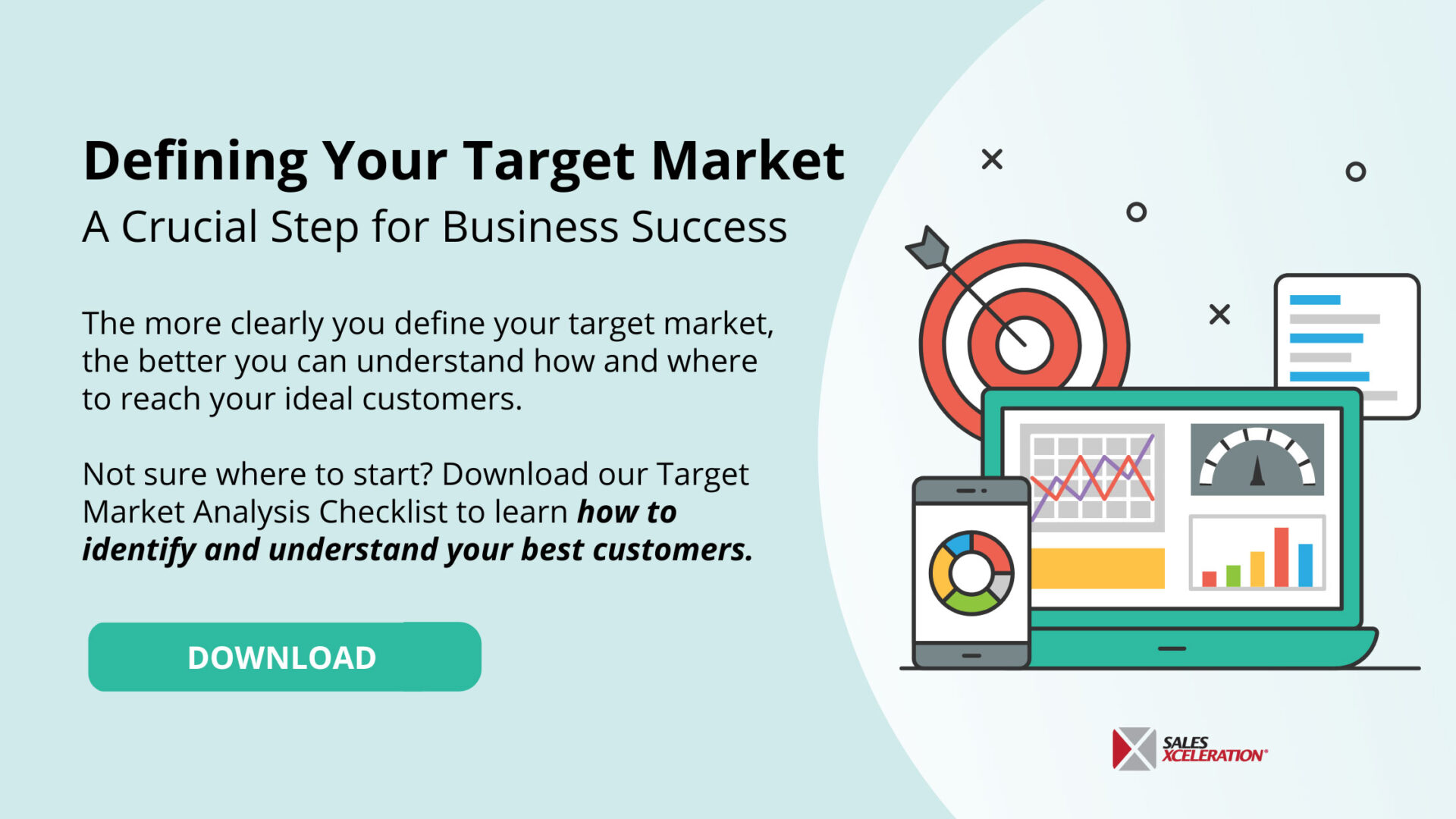
Ready. Aim. Sell! Sounds simple, right? Unfortunately, far too many small to mid-sized businesses skip the all-important AIM part – the part where target markets are defined and a target market strategy makes selling quicker and easier.
Simply put, a target market is a defined group of prospects likely to be interested in (and more importantly, to buy) your product or service. When selling, it is important to define your target market so you can tailor your marketing messages, sales strategies, and sales processes to reach targeted customers more effectively.
Just how big is the problem? The annual Sales Xceleration State of Sales report (which presents data and findings from our comprehensive Sales Agility Assessment tool) gives us a good idea. The report spotlights sales performance challenges and problems self-reported by 3,686 clients. And the insights are alarming, with 76% of businesses rating their overall Sales organizations as “Poor.”
What contributes to this huge problem? Several critical factors emerge, including the fact that nearly half of reporting organizations have not defined their target markets/ideal customer(s).
Is your company in this underperforming group? If you struggle to execute a target market strategy to sell to target market segments, here are a few tips for identifying target audiences and deploying a target market strategy for sales and revenue growth:
Target Market Segments
Defining target markets is commonly done using one or more of the following criteria:
- Demographics: The measurable characteristics of a population, such as age, gender, income, education, and location.
- Psychographics: The intangible characteristics of a population, such as their values, interests, and lifestyles.
- Behavior: Factors such as a population’s purchasing frequency, spending habits, and brand loyalty.
- Geographics: Simply, where your customers are.
Do your research on current customers and desired ones. Feed this target market analysis into your CRM and let it help you refine your selling processes. And be sure to use all of this target group information to create ideal buyer personas. Knowing your ideal customer makes selling so much easier!
Target Market Examples
Target markets can vary widely based on industry, economic landscape, and the nature of the business relationship (business to business [B2B] or business to consumer [B2C]). Typical target markets or target market segments might include:
- Business professionals
- Retirees
- Teenagers
- Customers based on gender or gender identity
- Customers based on ethnic or cultural backgrounds or influences
- Travelers
- Concert-goers
- Caregivers
- And on and on (if you can define a market, you can strategize and sell to it!)
Benefits of Target Marketing
Target marketing can benefit SMBs in many ways. These include:
- Improving your sales strategy by making it more responsive to the wants and needs of identified ideal
- Increasing your sales efficiency by focusing your marketing and sales efforts on the people most likely to actually want or buy your product or service. This can help you save time and money and improve your return on investment (ROI).
- Making it easier to differentiate your products, services, and overall brand with a compelling Unique Selling Proposition (USP) and Unique Value Proposition (UVP).
- Gaining essential insights from your Customer Relationship Management (CRM) platform by capturing emerging trends on new buyers and targeting which customers buy sooner and more often.
- Strengthening customer relationships for better brand loyalty and repeat business.
The Bottom Line:
The numbers that emerged in the State of Sales report might seem disheartening – for example, 89% struggle with sales strategy and industry positioning while 93% struggle with sales methodology – but there is good news:
With a little strategic analysis and time spent defining your target markets, your company can gain a significant competitive advantage over competitors who continue to operate inefficiently with “business as usual.”
Ultimately, by understanding the needs and wants of your target market, you can develop compelling marketing strategies and effective sales processes that will resonate with prospects and convert them into buyers.
To help identify challenges and solutions for your sales operation, take our free 10-Question Sales Agility Assessment. This tool is a great starting point for improving your current sales process. To learn even more about target marketing and how it can help your company leapfrog the competition, contact a Sales Xceleration Advisor today, or contact us at 844.874.7253.
Related posts:
No related posts.


